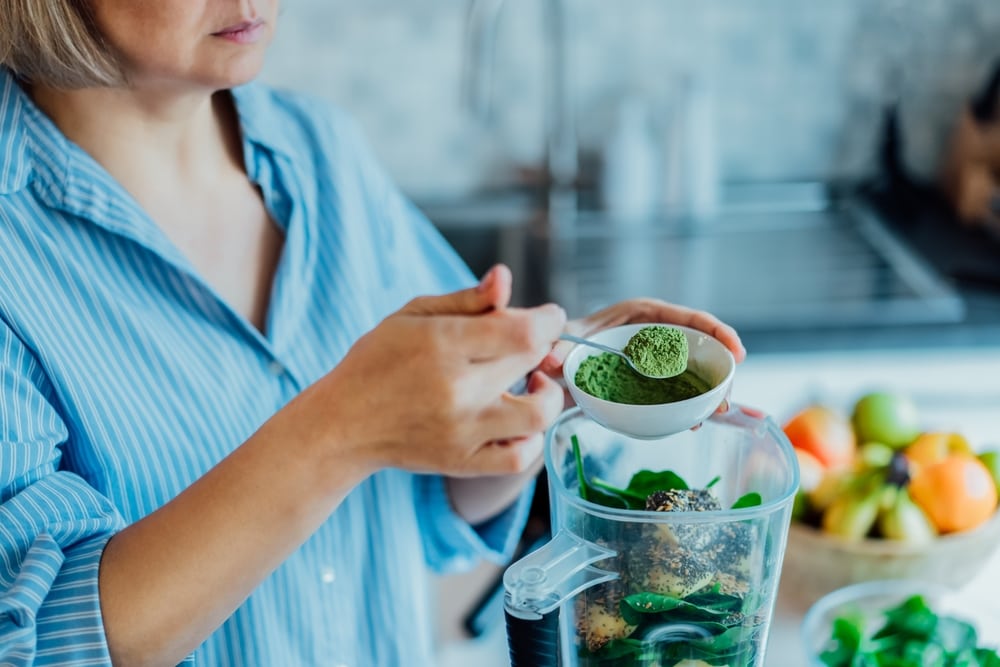Everyone deals with having trouble sleeping or staying asleep at least once in their lives. There are plenty of over-the-counter supplements and prescription medications to help improve your sleep. However, not everyone wants to take pills unless absolutely necessary. Lucky for them and anyone else who is struggling with sleep, you can improve sleep quality through food. There may even be a chance that you have at least one of these foods listed below in your home. If not, all it takes is a trip to the grocery store or some online food shopping to find the best late-night snacks and foods that will help you sleep better tonight.

50. Barley Grass Powder
Barley grass powder sounds like an odd ingredient, but it is a great additive to almost any meal. You won’t even notice it! It is rich in Gamma-Aminobutyric Acid (GABA), calcium, tryptophan, zinc, potassium, and magnesium, all of which are helpful in the promotion of restful sleep. One study even showed that participants that took a small amount of barley grass powder each day experienced improved sleep. Try mixing barley grass powder into smoothies, omelets, salad dressings, soups, or even plain water!
